The EU is more prepared for the Balkans than the Balkans are prepared for the EU

BUDVA – The European Union is more prepared for the Western Balkans than the Western Balkans are prepared for the European Union. This is one of the strongest messages from the second panel at the 2BS Forum: Crossroads of Change: Navigating the Future of the Western Balkans. The panel discussed the European perspective of the […]
Montenegro’s Political Maze: The Danger of Entrances that Lead Nowhere

BUDVA – The danger for Montenegro lies in entrances into a maze that lead nowhere; therefore, the country needs a government that knows where it’s going and what it’s doing. This is the assessment of participants in the panel discussion titled Montenegro’s Political Maze: Navigating Through Struggles and Challenges. Radoje Cerović, a communication expert and […]
The 2BS Forum began

Strong democratic institutions are more powerful than bullets and missiles BUDVA – The Russian aggression in Ukraine has emboldened anti-democratic actors in the Western Balkans who are working to undermine peace and stability in the region. Therefore, it is important to provide a unified response to this brutal and unprovoked aggression by strengthening democratic institutions […]
The thirteenth 2BS Forum begins tomorrow

Record media interest in the largest security forum in Southeastern Europe The 2BS Forum is taking place from October 5 to October 7, 2023, at the ‘Splendid’ Hotel in Budva. The Forum will be open with a reception for guests on October 5, 2023, while the formal program will commence the following day, on Friday, […]
2BS FORUM ON OCTOBER 5-7, 2023
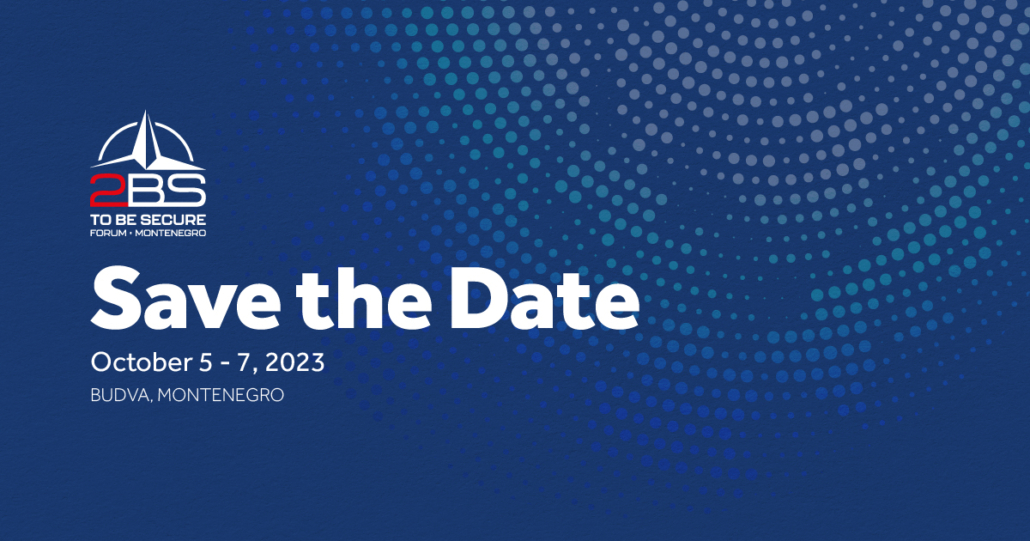
ZELENSKYY: Where true unity is achieved, there will be peace
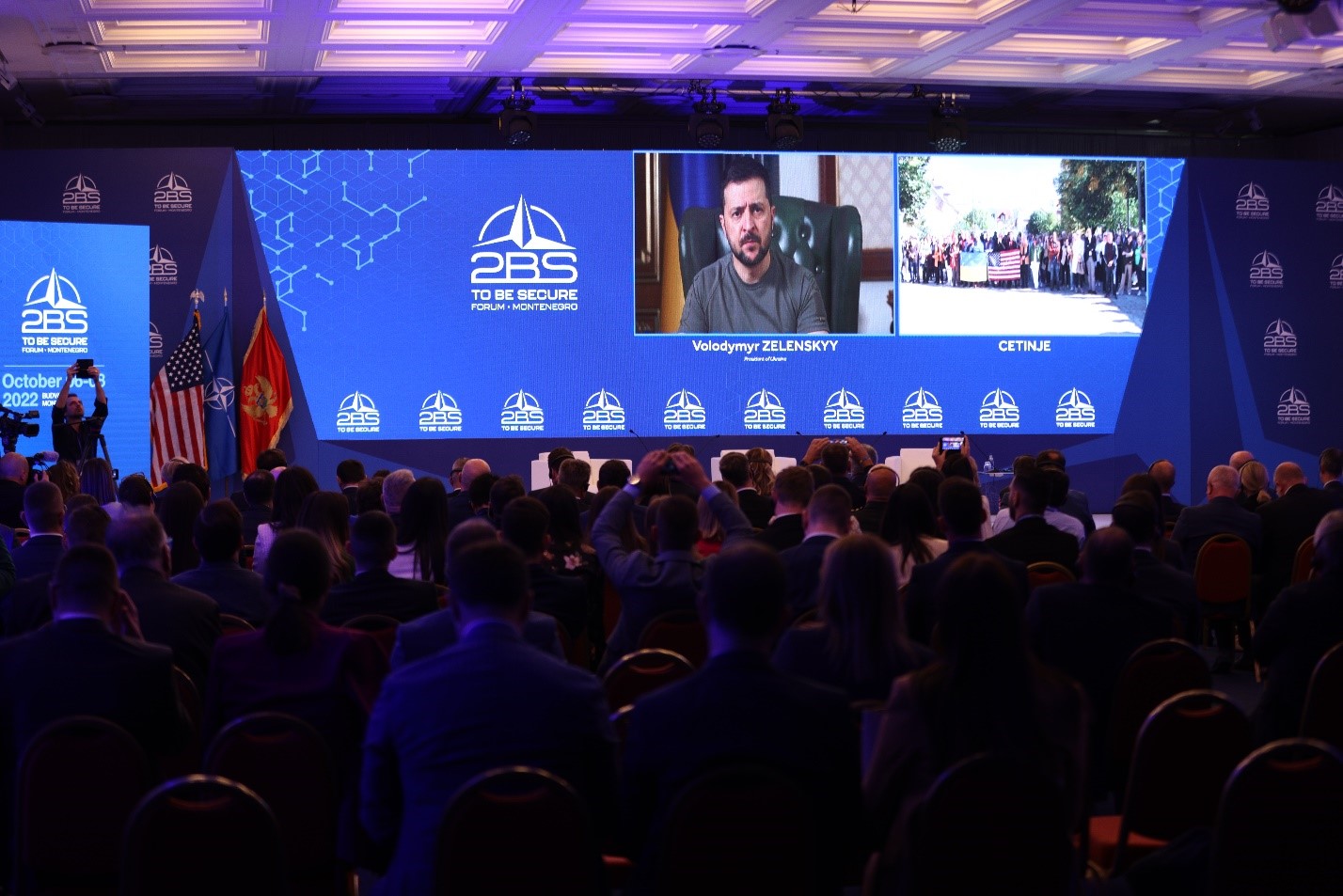
President Zelenskyy’s address marked the second day of the 2BS Forum. In the introduction, the Ambassador of Ukraine in Montenegro, Oleh Herasymenko, said that among all the cities in the world, there is only one city whose citizens came out in the rain and snow to support the Ukrainian struggle. That city is Cetinje, and […]
Milica Pejanović-Đurišić: Urgent action needed to preserve Montenegro’s sovereignty and stability
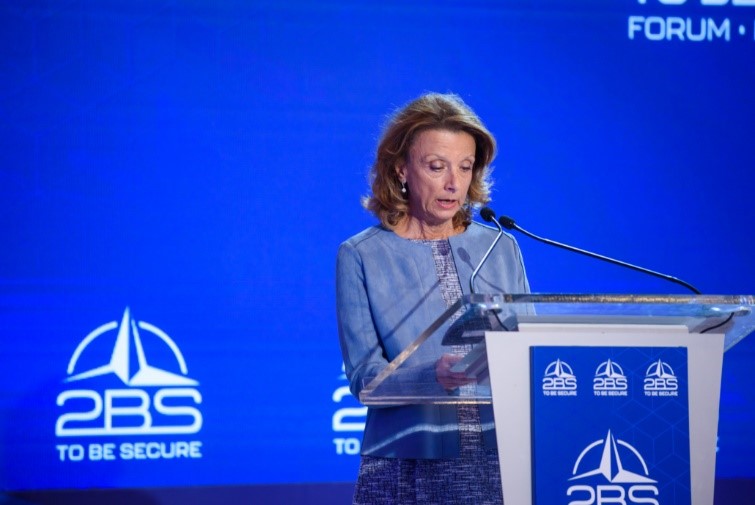
In the year when Montenegro marks its 5th anniversary of NATO membership, the 12th 2BS Forum was officially opened by Milica Pejanović-Đurišić, the Chairwoman of the Governance Board of the Atlantic Council of Montenegro. In her speech, Professor Pejanović-Đurišić stated that during the past years, the Forum has become a relevant platform that initiates and […]
Mircea Geoană, NATO Deputy Secretary General: We are here for Montenegro and the Balkans
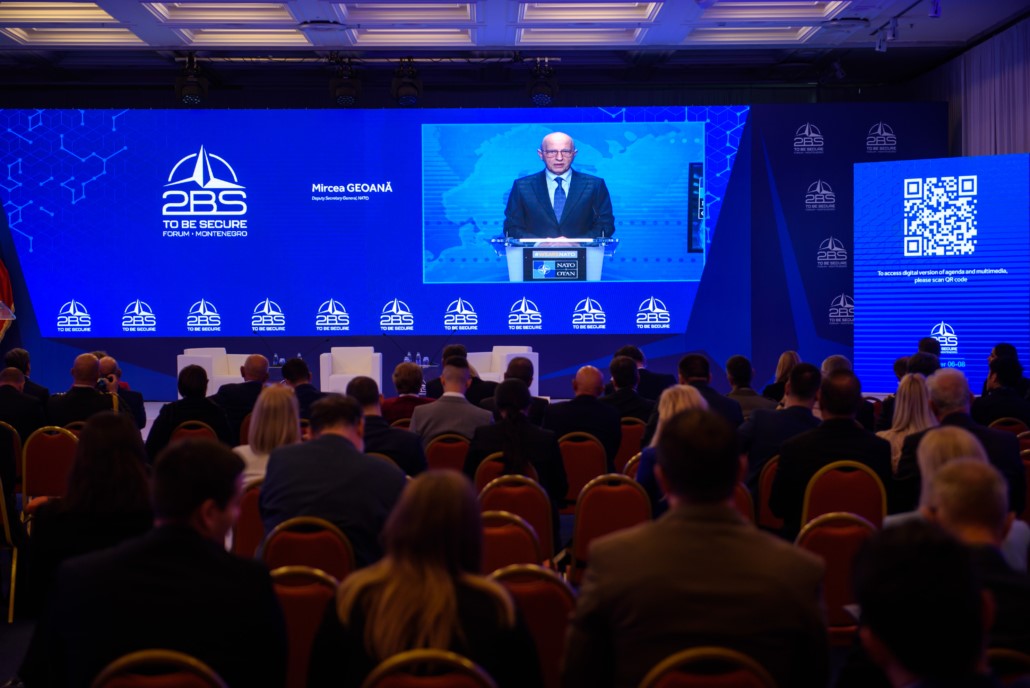
The first keynote address on the 12th 2BS Forum was by Mircea Geoană, NATO Deputy Secretary General. He emphasized NATO’s commitment to ensure peace in the Balkans through the KFOR mission. Resolution 1244, which governs KFOR, remains where it was. We will take whatever steps are necessary to ensure a safe and secure environment for […]
The Western Balkans’ European Future: Dreams, Delusions, and Reality Check: Failure to speed up the accession process represents a security challenge for Europe
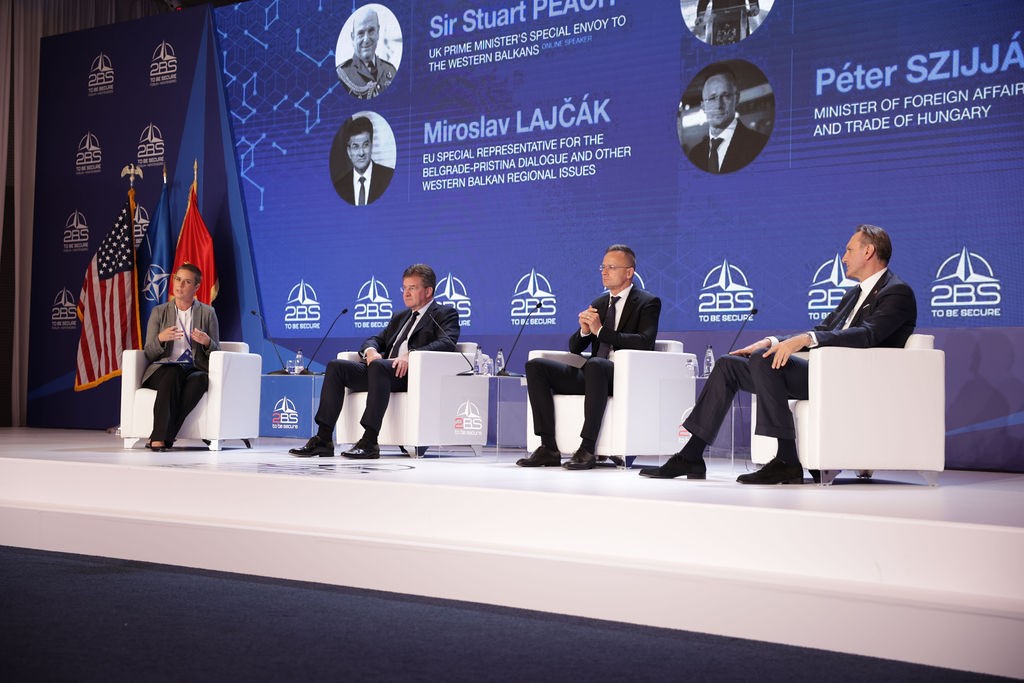
At the panel dedicated to the future of the Western Balkans, the Special Envoy of the British Prime Minister for the Western Balkans, Sir Stuart Peach, said that the existing security should not be taken for granted. He said that the risks posed by Russia’s invasion of Ukraine are very real and burden the region’s […]
Abazovic: After August 30, everything has been done to protect Montenegro
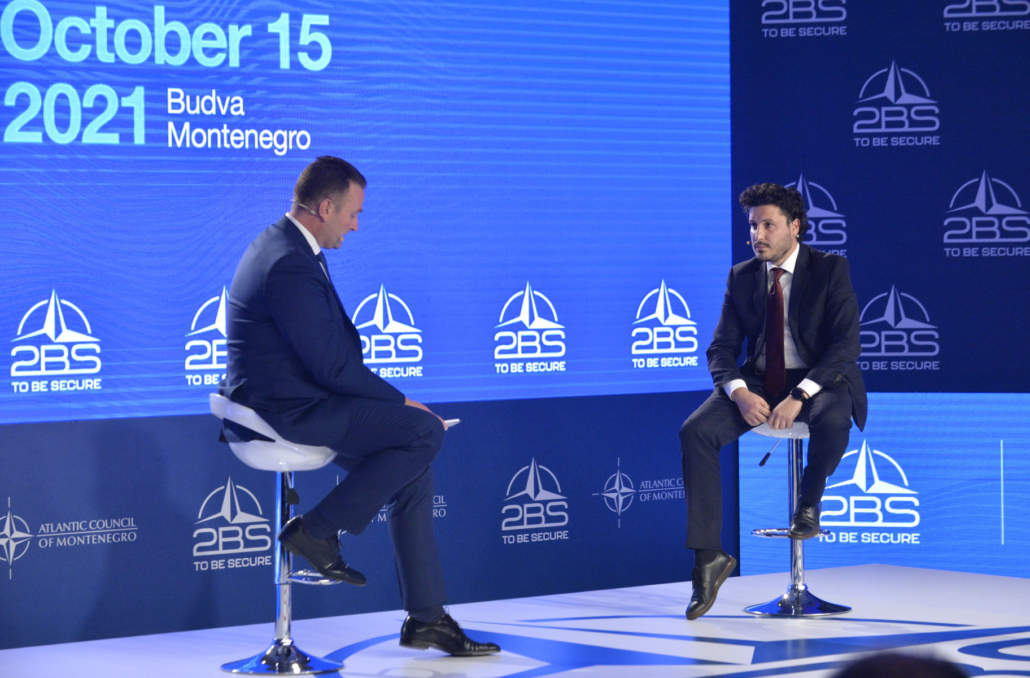
Deputy Prime Minister of Montenegro and coordinator of security services, Dritan Abazovic, said that the attempt to bring down the whole security system after the event in Cetinje on September 5 was, for him, the red line that cannot be crossed. The red line occurred after the events in Cetinje, there were no casualties there, […]